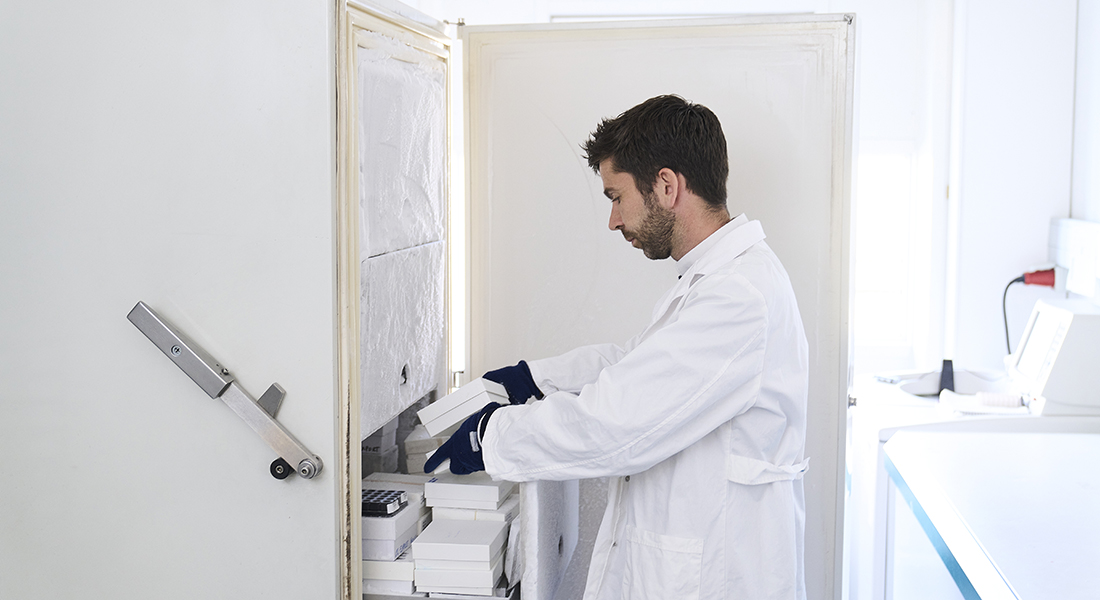New research initiative is to shed light on the role of intestinal bacteria in obesity, diabetes, and cardiovascular diseases
A new research initiative, the Microbiome Health Initiative, will investigate whether there is a causal relationship between intestinal bacteria and conditions such as diabetes and cardiovascular diseases. The Department of Nutrition, Exercise and Sports will contribute with research into the causal relationships between intestinal bacteria, diet, and health. The first phase of the initiative is funded by a grant of DKK 150 million from the Novo Nordisk Foundation.

Over the past decade, research has indicated that intestinal bacteria play a role in the development and prevention of illnesses such as diabetes and cardiovascular disease. Associate Professor Henrik Roager from the Department of Nutrition, Exercise and Sports at the University of Copenhagen is one of the researchers who, with his expertise in the interaction between intestinal bacteria, diet, and health, will help clarify the role of intestinal bacteria in human health.
”We suspect that the molecules produced by the intestinal bacteria are crucial if we are to understand how intestinal bacteria play a role in obesity, diabetes, and cardiovascular diseases. Using our advanced analytical methods, we will measure the production of these molecules by the intestinal bacteria, and clarify how they relate to diseases, as well as examine how the molecules can be affected through targeted dietary supplements," says Henrik Roager.
Interdisciplinarity strengthens the potential impact of the project
The interdisciplinary approach of the initiative, with several different research units and hospitals, makes it possible to coordinate research between the strongest international environments and increases the potential for the results to make a difference in practice.
”We are very proud to be able to contribute to this important initiative!" says Henrik Roager and continues: "We hope to be able to help identify new ways to prevent and treat diseases - for example in the form of new health-beneficial bacteria, microbial molecules, or dietary supplements targeted at the gut. This is necessary, as the prevalence of these diseases is increasing and they pose a global health challenge.”
The next phase is in the pipeline
The Microbiome Health Initiative, will be anchored at the Technical University of Denmark and involves researchers from the University of Copenhagen, the Amsterdam University Medical Centre, and the Weizmann Institute of Science, as well as clinicians at Odense University Hospital and Steno Diabetes Centre Copenhagen.
The Microbiome Health Initiative consists of two phases. The first phase runs from 2024 to 2028 with a total budget of DKK 150 million. The aim is to identify new strategies targeting the gut to prevent diseases. The Department of Nutrition, Exercise and Sports will receive funds of approximately DKK 15 million as part of this phase. Phase 2, which runs from 2026 to 2030, conditional on a successful mid-term evaluation of Phase 1, will focus on testing supplements of bacteria, microbial molecules, and/or targeted dietary supplements as new prevention and treatment strategies.
Further information
Find Novo Nordisk Foundation's press release on The Microbiome Health Initiative here.
Contact
Henrik Munch Roager
Associate Professor and Head of Research Group
Department of Nutrition, Exercise and Sports
University of Copenhagen
Mail: hero@nexs.ku.dk
Phone: +45 2548 0699
Kristian Levring Madsen
Head of communication
Department of Nutrition, Exercise and Sports
University of Copenhagen
Mail: kma@nexs.ku.dk
Phone: +45 4048 1684
